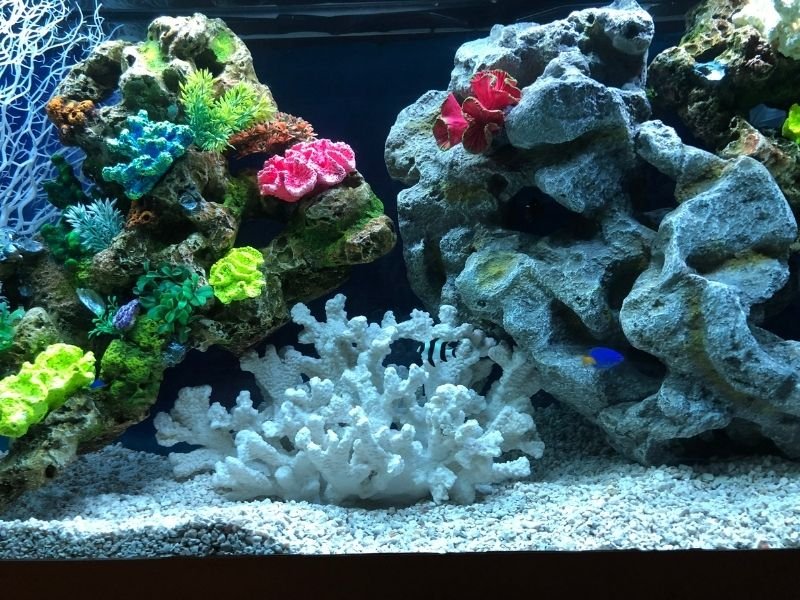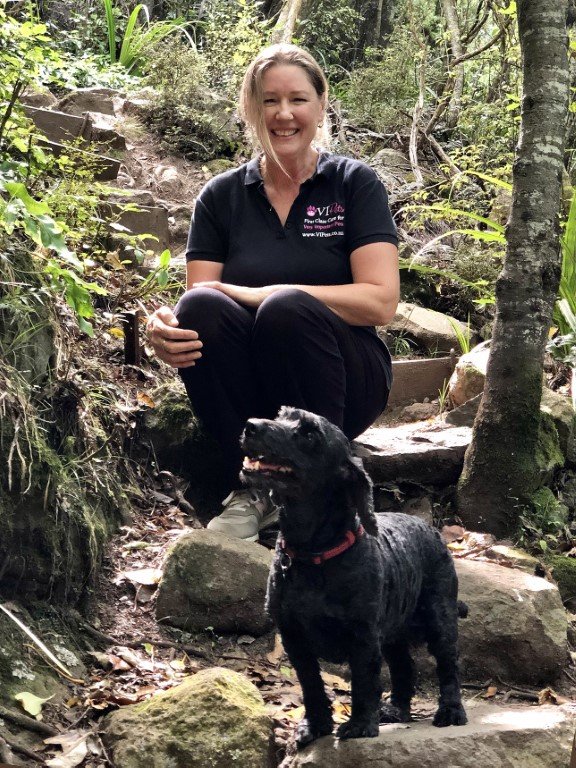Fish have this reputation for being the ultimate low-maintenance pet. They live in their tank, you sprinkle in some food, maybe change the water occasionally, and that’s it. No walks, no litter trays, no demanding attention. Basically look after themselves, right?
If you actually keep fish, you know that’s absolute nonsense.
Maintaining a healthy aquarium is surprisingly complex and requires consistent attention to detail. Water chemistry needs monitoring. Filters need checking. Feeding amounts matter enormously. Temperature must stay stable. Equipment can malfunction. And if something goes wrong, fish can deteriorate incredibly quickly with no obvious warning signs until it’s too late.
If you’re reading this because you need someone to care for your fish in Christchurch while you’re away, you already understand all of this. You’re not looking for someone to just throw in some food and hope for the best. You want someone reliable who’ll follow your instructions carefully, notice if something’s not right, and contact you immediately if there’s a problem.
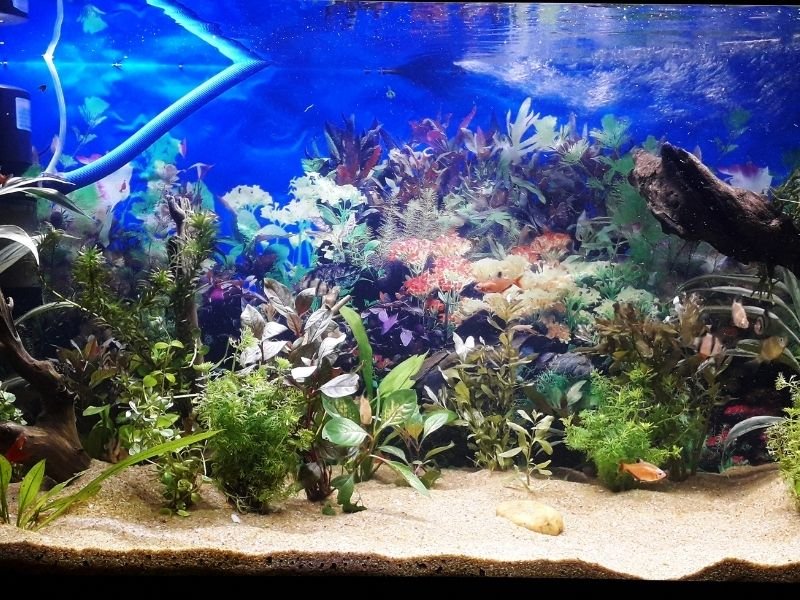
Why Fish Care Is More Involved Than People Realise
Here’s something that surprises people who’ve never kept an aquarium. Fish aren’t like other pets where you can see immediately if something’s wrong. By the time a fish looks visibly unwell, they’re often already in serious trouble. The key to fish care is preventing problems through consistent monitoring and maintenance, not reacting to obvious symptoms.
Water quality is absolutely critical and can change rapidly. Ammonia, nitrite, and nitrate levels need to stay within safe ranges. pH needs to remain stable. Temperature fluctuations can stress fish enormously. A power outage affecting your heater or filter can create an emergency situation within hours. These aren’t things you can see with your eyes – you need to actually test the water and check equipment.
Feeding seems straightforward but it’s surprisingly easy to get wrong. Overfeeding is one of the most common mistakes and it causes serious water quality problems. Uneaten food decomposes, creating ammonia spikes that can kill fish. Different fish species need different foods and feeding frequencies. Some fish need multiple small meals daily, others do better with once daily feeding, and some species can actually go several days without food with no problems.
Equipment failures are more common than you’d think. Filters can stop working. Heaters can malfunction (causing temperature to plummet or spike dangerously). Air pumps can fail. Lights can burn out. If you’re not checking these things during each visit, you won’t know there’s a problem until fish start dying.
Then there’s the species-specific knowledge. Goldfish have completely different care requirements than tropical fish. Saltwater aquariums are exponentially more complex than freshwater ones. Some fish are aggressive and need watching to ensure they’re not harassing tank mates. Others are shy and stress easily. Knowing what’s normal behaviour for each species matters.
All of this means fish care isn’t something you can wing your way through. It requires careful attention, consistent checking, and following the owner’s instructions precisely.
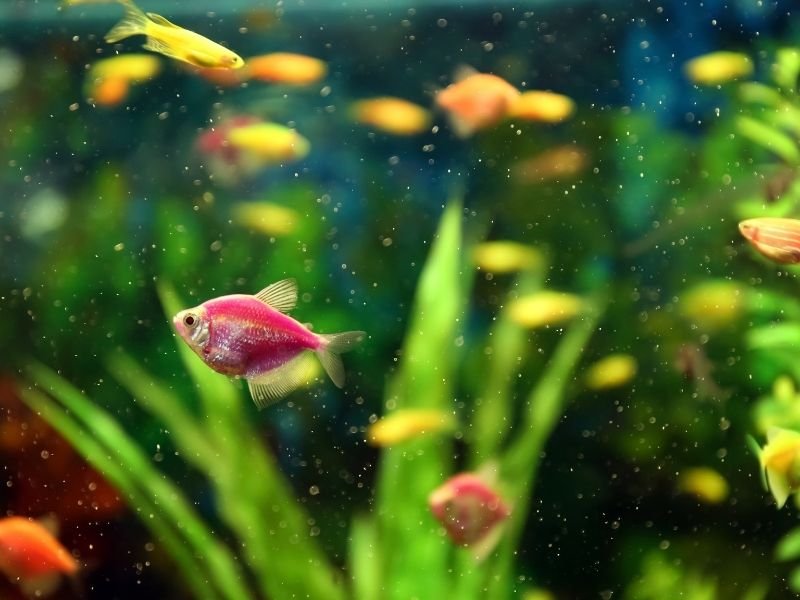
What Professional Fish Sitting Actually Involves
When I care for fish in Christchurch, here’s what happens during each visit. The complexity varies enormously depending on the type of setup, but certain things need checking every single time. Just as birds have unique respiratory sensitivities, fish have critical water quality needs that can’t be ignored.
First is the visual check of the fish themselves. Are they all present and accounted for? Are they swimming normally at their usual depth and location in the tank? Are any fish hanging at the surface gasping (sign of oxygen problems)? Are any sitting at the bottom looking lethargic? Are there any visible signs of illness – white spots, cloudy eyes, damaged fins, unusual markings? Is anyone being bullied or chased excessively?
Equipment gets checked thoroughly. Is the filter running properly with good water flow? Is the heater working and showing the correct temperature? Are air stones bubbling away? Are lights functioning? Is there any unusual noise from equipment that might indicate a problem? Simple equipment checks can prevent tank failures.
Water temperature gets verified with a thermometer. Even if the heater looks like it’s working, I’m checking the actual temperature to make sure it’s within the safe range for that species.
Feeding happens according to the owner’s specific instructions. How much food? What type? How many times per day? Are there different foods for different fish in the tank? I follow these instructions exactly because overfeeding or underfeeding both cause problems. I also watch to ensure fish are actually eating and that food isn’t just sinking uneaten to the bottom.
Tank maintenance varies by setup and owner preference. Some want daily spot cleaning of visible debris. Others prefer minimal intervention between proper water changes. Some ask for algae to be wiped from glass during visits. I follow whatever maintenance routine the owner has established rather than imposing my own ideas about how tanks should be maintained.
Water testing happens as requested by the owner. Some aquarium keepers want parameters checked during every visit. Others only want testing if something seems off. If testing is required, I use their test kits and record results exactly, contacting them immediately if anything’s outside normal ranges.
All observations get documented. What did the fish look like? What was the temperature? Did equipment seem fine? How much food was given? Were there any concerns? These detailed notes mean if something does go wrong, we have a record of when changes started appearing.
All of this typically takes fifteen to thirty minutes per visit depending on tank size and complexity. Multiple tanks obviously take longer.
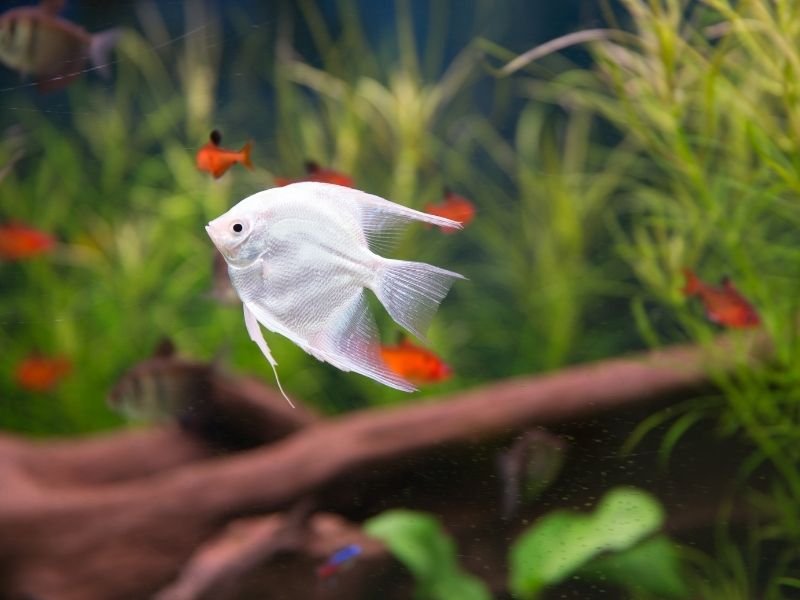
When You Need a Holiday Fish Sitter in Christchurch
The most common reason people contact me for fish care is holiday travel. You’re going away for Christmas or taking a summer break and you need someone to maintain your aquarium while you’re gone.
But there are other situations where professional fish sitting becomes necessary. Work trips, family emergencies, medical procedures requiring hospital stays, or temporary accommodation where you can’t bring your tank.
The key challenge is finding someone who’ll actually show up reliably and follow instructions carefully. Fish don’t make noise if they’re hungry or if their filter has stopped working. They can’t alert anyone to problems. They depend entirely on whoever’s caring for them to notice issues and act appropriately.
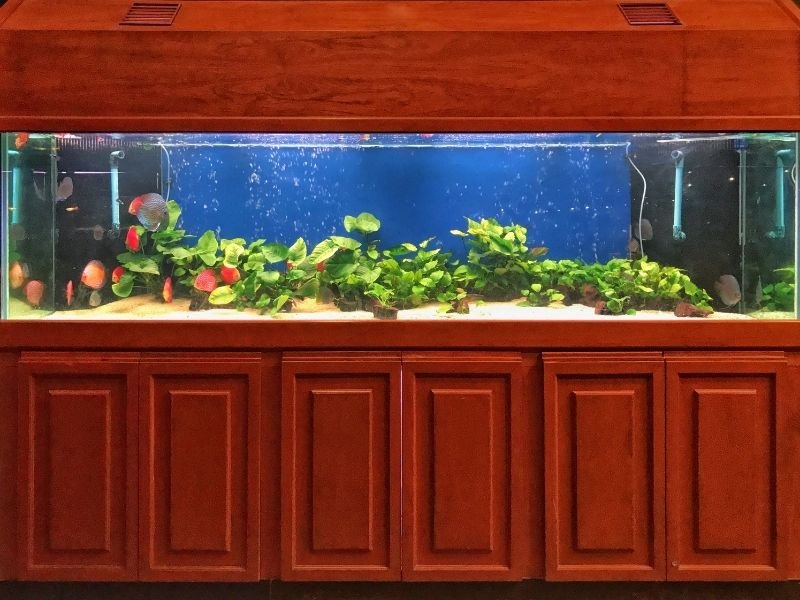
Why Friends and Family Often Struggle With Fish Care
I need to say this carefully because nobody wants to feel like they’ve failed someone. But I’ve seen numerous situations where well-meaning friends or family agreed to care for fish and things didn’t go smoothly.
The most common problem is inconsistency. They agree to visit daily but then life gets busy and they skip a day here and there. Or they come by but they’re rushing and don’t actually check anything properly, just throw in some food and leave. Fish need someone showing up reliably to maintain stable conditions.
The second issue is overfeeding. People who don’t keep fish themselves tend to overfeed because it seems kind. The fish come to the front of the tank looking eager and your friend thinks they must be hungry so they add extra food “to be nice.” Within days, water quality has deteriorated and fish are getting sick from ammonia spikes.
Equipment problems get missed entirely. If your friend doesn’t understand that aquarium equipment needs checking, they won’t notice when the filter starts making odd noises or the heater stops working. By the time fish are obviously stressed or dying, significant damage has been done.
There’s also the emergency response question. If something does go wrong – fish looking sick, equipment failure, water looking cloudy or smelly – does your friend know what to do? Will they contact you immediately? Will they know which aquarium shop to call for advice? Or will they panic and do nothing, hoping it resolves itself?
And honestly, there’s the friendship strain aspect. If something goes wrong with your expensive fish collection while your friend was caring for them, both of you feel terrible even though it was an accident. They feel guilty. You’re upset about your fish but don’t want to blame someone who was doing you a favour. It creates awkwardness that can genuinely damage relationships.
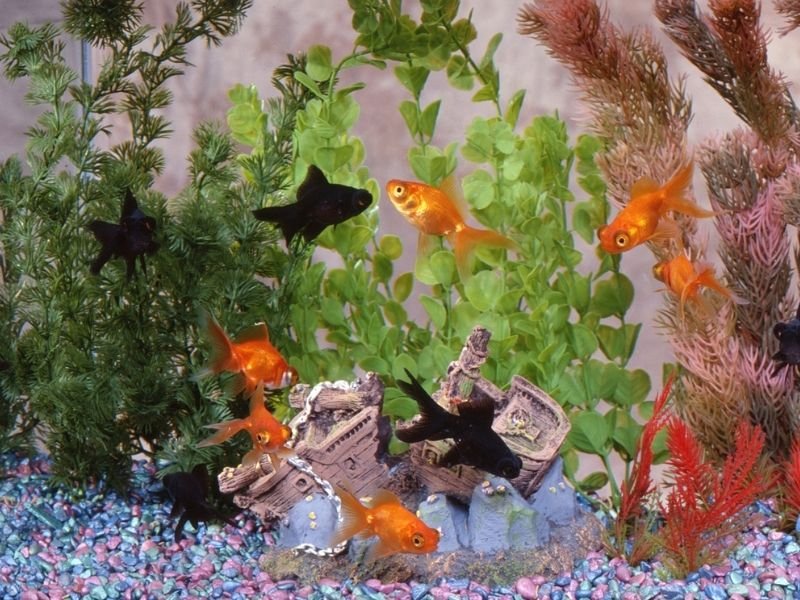
Finding a Reliable Fish Sitter in Christchurch
If you’ve decided professional fish care in Christchurch is the right choice, here’s what to look for when selecting someone.
Reliability is actually more important than extensive fish expertise. Fish care is largely about following instructions consistently. I’d rather work with someone who shows up exactly when they say they will and follows directions precisely than someone who knows everything about aquariums but is flaky about visits.
That said, basic aquarium knowledge matters. Your sitter should understand that water quality is critical. They should know to check equipment. They should recognise that fish behaviour tells you a lot about tank health. They should understand the difference between freshwater and saltwater complexity. They don’t need to be aquarium experts, but they need enough knowledge to know when something’s not right.
Willingness to follow instructions is absolutely essential. Every aquarium is different. Every fish keeper has their own routine and preferences developed over time for their specific setup. Your sitter needs to follow your instructions exactly, not improvise based on what they think is best. If you say feed this amount at this time, that’s what needs to happen, not more and not less.
Communication is critical because fish problems can escalate quickly. Your sitter should contact you immediately if anything seems off – fish behaviour changes, equipment issues, water looking different, temperature problems, anything unusual. Quick communication allows you to guide them through solutions before small problems become disasters.
A proper meet and greet before you leave isn’t optional. Your sitter needs to see your setup while you’re there to explain it. Walk them through your exact routine. Show them how equipment works. Explain what’s normal for your fish. Demonstrate feeding amounts. Answer all their questions. Leave written instructions as well, but the in-person demonstration ensures they actually understand everything.
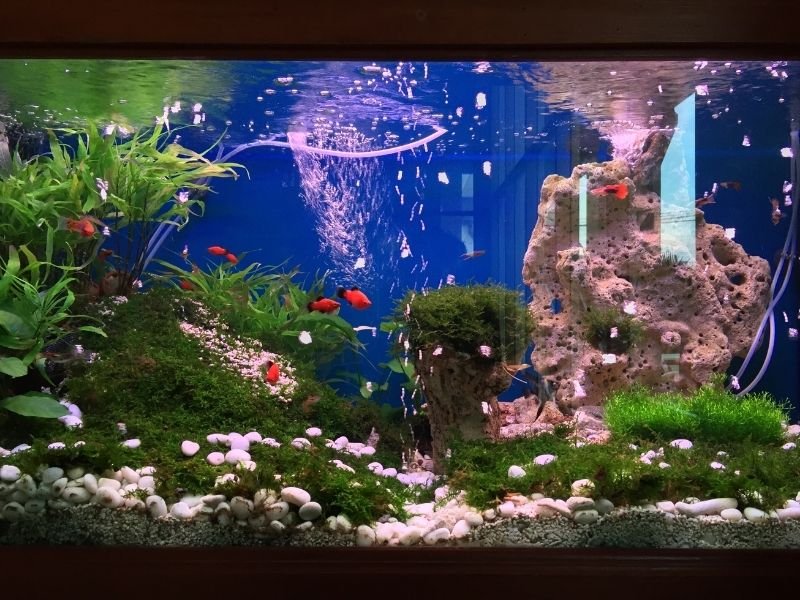
What to Prepare for Your Fish Sitter
Once you’ve found someone reliable to care for your fish, here’s what you need to have ready to make everything run smoothly.
Write down your complete routine in extensive detail. What time do fish get fed? Exactly how much food? What type? Does it need preparation? How many times per day? Which fish get which foods if you have multiple species? Be incredibly specific because assumptions lead to mistakes.
Equipment information should include what everything is and what normal operation looks like. Point out your filter, heater, air pump, lights. Explain what they should hear and see when things are working correctly. Show them where power switches are. Explain any timers or automatic equipment.
Leave your thermometer visible and accessible. Mark the normal temperature range clearly. If temperature is outside this range, that’s an immediate contact situation.
Prepare feeding portions in advance if possible. Pre-measured amounts in separate containers for each day means your sitter can’t accidentally overfeed. Pill organisers are perfect for this. This removes the guesswork entirely.
Emergency contact information needs to be comprehensive. Your phone number obviously, but also a backup contact who can make decisions if you’re unreachable. Your local aquarium shop’s details for equipment emergencies or advice. If you have an aquarium maintenance company you use, their information too.
Water testing instructions if you want parameters checked. Which test kits to use? What results are normal? What results require immediate contact? Don’t assume your sitter knows how to use test kits – demonstrate the process.
Tank-specific quirks need explaining. Does your lid need to sit a certain way? Is there a fish that jumps so the lid must stay secure? Does one aggressive fish need watching? Do any fish hide normally so their absence doesn’t mean they’ve died? All these little details matter.
Take recent photos of your tank and fish. If something goes wrong, having “before” photos helps your sitter explain what’s changed.
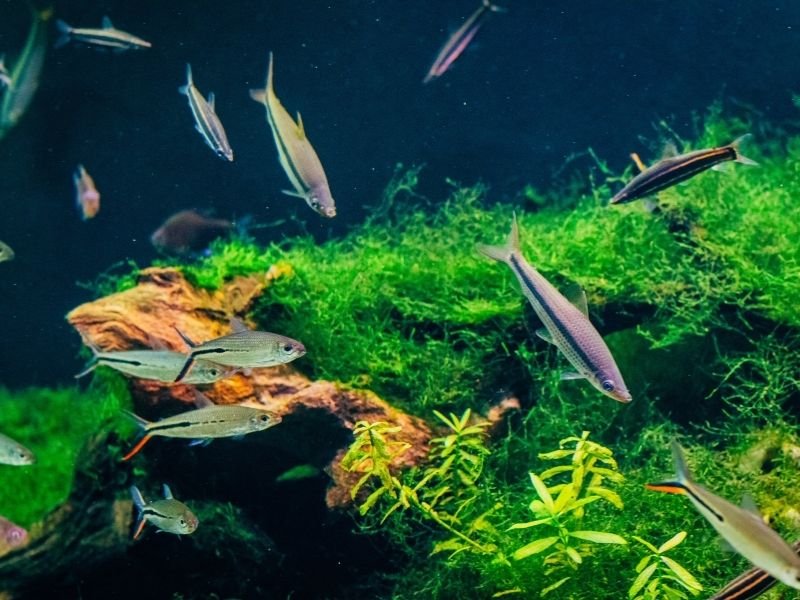
Fish Sitting Prices in Christchurch
People often ask about costs when planning fish care, and I understand it’s an important factor in your decision.
For professional fish sitting in Christchurch, you’re typically looking at around twenty to thirty dollars per visit depending on tank complexity and number of tanks. Basic feeding and equipment checks are on the lower end. Multiple tanks, water testing, or more complex maintenance pushes towards the higher end.
That might seem expensive compared to asking a friend to help for free. But consider what you’re paying for. Someone who shows up reliably every single time. Careful attention to detail following your exact instructions. Equipment monitoring that can prevent tank disasters. Communication if problems develop. Peace of mind while you’re away knowing your fish aren’t being neglected or overfed.
It’s also worth comparing to the cost of replacing expensive fish if something goes wrong. Quality tropical fish aren’t cheap. Saltwater fish and corals are extremely expensive.
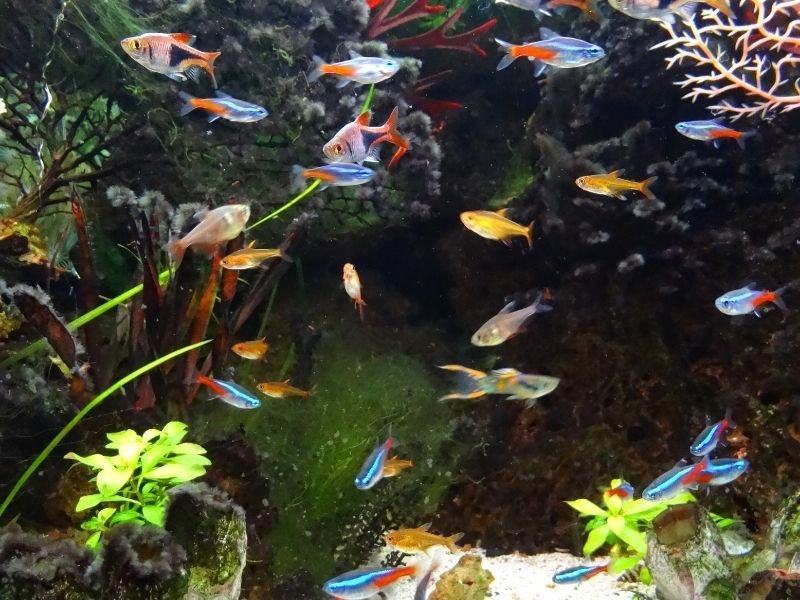
What Makes Good Fish Care Different
When I first started offering fish sitting, I’ll be honest – I approached it thinking “how hard can it be?” I had basic understanding of aquariums but I quickly realised that every single tank setup is unique and every fish keeper has their own carefully developed routine.
What I’ve learned is that fish care is about consistency, attention to detail, and respecting that the owner knows their setup better than anyone else. My job isn’t to come in and do things my way. It’s to follow their instructions exactly, check that everything’s functioning properly, and alert them immediately if anything seems off.
I also learned that fish keepers are often perfectionists about their tanks (in a good way!). They’ve spent time and money creating a balanced ecosystem and they’ve figured out what works for their specific fish. They don’t want someone coming in and changing things or improvising. They want someone who’ll maintain the status quo until they return.
That’s what professional fish sitting really is. Not necessarily someone who’s an aquarium expert, but someone reliable who follows instructions precisely and takes the responsibility seriously.
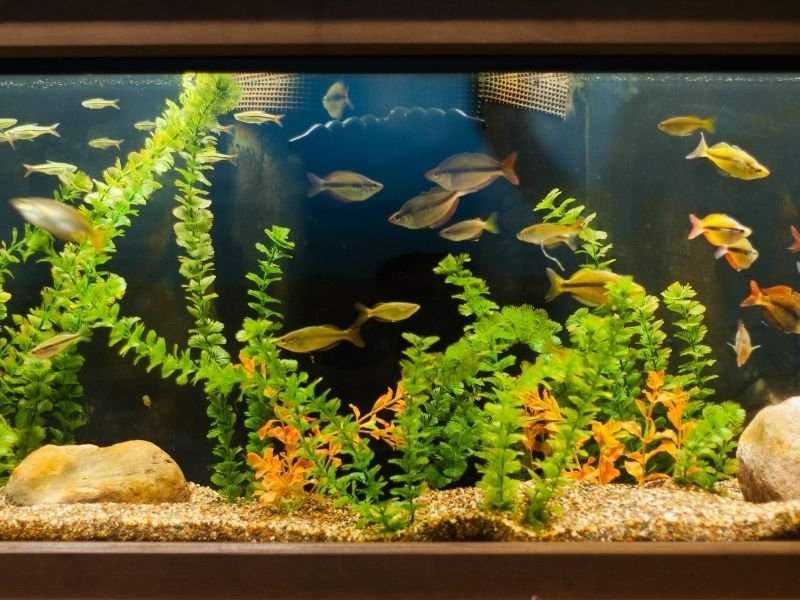
Frequently Asked Questions About Fish Sitting in Christchurch
How often should someone visit my fish while I’m away?
For most aquariums, daily visits are best for trips lasting a week or more. For short weekend trips, fish can often manage with feeding right before you leave and immediately when you return, though a mid-weekend check is safer for peace of mind. Equipment needs checking daily to catch problems quickly, and most fish benefit from daily feeding, so daily visits are recommended for longer absences.
Can fish survive a weekend without feeding?
Most healthy adult fish can easily go two to three days without food with no problems. In fact, occasional fasting can be beneficial. However, this assumes all equipment continues functioning normally and water parameters remain stable. The risk with weekend absences isn’t usually starvation – it’s equipment failure going unnoticed. Even a single mid-weekend check significantly reduces this risk.
What if my filter or heater stops working while I’m away?
This is exactly why daily equipment checks matter. A filter stopping means ammonia builds rapidly – fish can die within a day or two. A heater failure in winter means temperature drops dangerously fast. Your sitter should check equipment during every visit and contact you immediately if anything’s not working. Have backup equipment available if possible, and ensure your sitter knows who to call for emergency equipment replacement.
How much should I feed my fish when I’m not there?
Follow your normal feeding routine exactly. This isn’t the time to change amounts or frequencies. Your sitter should feed the same amount you’d feed, at the same times. Pre-measuring portions helps prevent overfeeding. If you normally feed twice daily but want to simplify during your absence, switching temporarily to once daily is safer than having someone unfamiliar with your tank feed twice daily and risk overfeeding.
What if my water parameters change while I’m away?
If your sitter tests water and finds parameters outside normal ranges, they should contact you immediately with exact test results. You can then guide them on whether action is needed or if it can wait until you return. For serious issues like ammonia or nitrite spikes, you might need to talk them through an emergency water change or direct them to an aquarium maintenance service who can help.
Should I do a water change right before I leave?
Generally yes, doing a water change a day or two before you leave gives your fish the cleanest possible environment while you’re gone. However, don’t do a massive water change right before leaving – stick to your normal change percentage. Drastic changes in water parameters can stress fish. You want stability, not perfection.
What about automatic feeders?
Automatic feeders can supplement professional care but shouldn’t replace human visits entirely. They can malfunction, dispense too much food, or jam and dispense nothing. They also don’t check equipment or notice sick fish. If you use an automatic feeder, still have someone visit every two to three days to verify it’s working and check tank conditions.
Can the fish sitter do water changes?
Some fish sitters will do water changes if you show them your exact process and they’re comfortable doing it. However, water changes during your absence should be kept to emergencies only. The risk of something going wrong (wrong temperature, wrong dechlorinator amount, disturbing tank balance) is higher when someone unfamiliar with your routine is doing it. It’s safer to do a good water change before you leave and another when you return.
What if I have a saltwater aquarium?
Saltwater tanks are significantly more complex than freshwater and require more experienced care. Your sitter needs to understand salinity testing, the importance of top-up water for evaporation, protein skimmer maintenance, and the sensitivity of corals and marine fish. Be very thorough in your instructions, consider more frequent visits, and ensure your sitter knows this is more involved than basic freshwater care.
How do I know the sitter actually came?
Professional pet sitters provide proof through time-stamped visit reports, photos of your tank, and documented notes about observations and actions taken. You should receive confirmation after each scheduled visit. If your sitter can’t provide this documentation, that’s a red flag. Many sitters also use GPS-tracked software that automatically records visit times.
Need reliable fish sitting in Christchurch? VIPets provides consistent, careful aquarium care following your exact instructions. Daily equipment checks, precise feeding, and immediate communication if issues arise. Contact us for a comprehensive tank demonstration and meet and greet.

